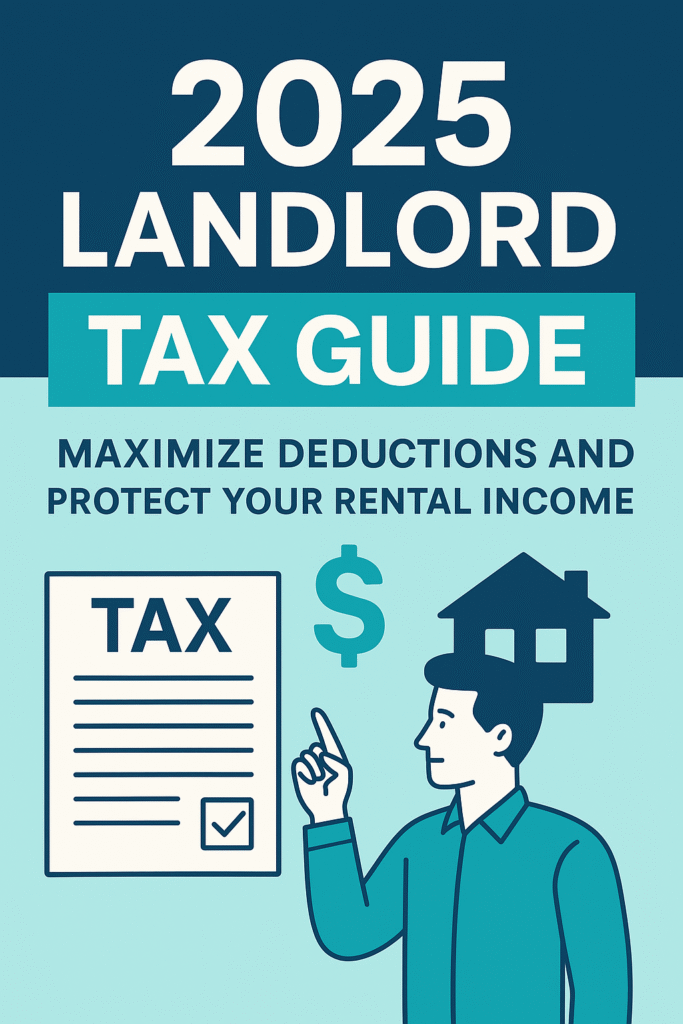
Tax season has arrived, and for landlords, that means more than just filing paperwork—it’s an opportunity to strategically reduce your taxable income and strengthen your investment performance.
From depreciation and insurance write-offs to IRS recordkeeping standards, 2025 brings both familiar deductions and new considerations for rental property owners. And with California’s high operating costs, capturing every eligible expense is more important than ever.
True Property Management works with landlords year-round to ensure income tracking, expense documentation, and property operations are tax-season ready.
Understanding Rental Income Reporting
The IRS requires landlords to report all rental income, including:
- Standard monthly rent payments
- Advance rent payments (see why prepaid rent isn’t released immediately)
- Services received in lieu of rent
- Tenant-paid expenses
- Lease cancellation penalties
- Security deposits (if applied to rent or damages)
Failing to report these properly can result in penalties—another reason accurate bookkeeping is essential.
Learn four landlord tax tips to save big this year.
Major Deductions Landlords Should Leverage in 2025
Depreciation
The IRS allows you to deduct a portion of your rental property’s cost over its useful life. This non-cash expense can be one of the most powerful tools to offset rental income.
Insurance Premiums
Whether it’s basic liability coverage or specialized landlord protection, insurance costs are fully deductible. True Property Management breaks down landlord insurance benefits here.
Repairs and Maintenance
Repairs that are ordinary, necessary, and directly related to the upkeep of your property are deductible in the year they’re incurred. Labor costs for contractors, plumbers, and electricians are deductible—your own labor is not.
Key Point: With rising service costs in California, weigh whether outsourcing repairs is more cost-efficient than DIY.
Recordkeeping: The Foundation of Tax Savings
Meticulous records are a landlord’s best defense in an IRS audit and a key to maximizing deductions. Essential documents include:
- Lease agreements and legal notices
- Permits, insurance policies, and loan documents
- Invoices for repairs, maintenance, and advertising
- Mortgage interest statements
- Professional service receipts (property management, legal, accounting)
- Utility bills (if landlord-paid)
True Property Management’s Owner Portal gives landlords 24/7 access to financial statements, leases, invoices, and year-end tax reports—making April 15th far less stressful.
The Tax Cuts and Jobs Act: Benefits Still in Play
The Tax Cuts and Jobs Act (TCJA) remains in effect through 2025 and continues to provide meaningful advantages for landlords, including:
- Lower individual tax rates
- A 20% pass-through deduction on qualified rental income (subject to IRS rules)
- Section 179 expensing for personal property used in your rental business
For out-of-state landlords, understanding California Rent Tax Withholding Waivers is crucial to avoid unnecessary state withholding.
The 2025 Reality: Why Strategy Matters
While many of the tax rules for landlords remain unchanged, the broader market in 2025 has shifted. Higher interest rates, rising service costs, and tighter competition for tenants mean every expense and income source matters.
Landlords who plan ahead, keep detailed records, and leverage professional property management are better positioned to minimize tax liability while maintaining steady rental income.
Contact True Property Management to protect your rental investment, streamline operations, and make every tax season work in your favor.

Kurt Galitski- Principal, Broker
(949) 688 7705 | DRE #: 01348644
2919 Newport Blvd, Newport Beach, CA 92663
Disclosure
We are not certified tax advisors, accountants, or licensed tax professionals. Any information provided by us is for general informational purposes only and should not be relied upon as tax, legal, or financial advice. You are strongly encouraged to consult with a qualified tax professional, CPA, or attorney regarding your specific circumstances before making any financial or tax-related decisions. We expressly disclaim any liability for actions taken or not taken based on the content of this communication.